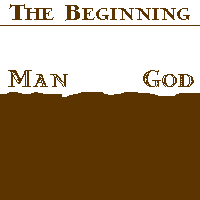The musings, rambling blog entries, humor, life, political opinions, observations, personal and spiritual beliefs, tasty treats and other writings of an almost 40, single mother of two.
Wise Words
Translation/Search
Thursday, March 28, 2013
Some Debates Aren't Worth Winning
About Me

- Nic
- CenTex, Texas, United States
- SO much has changed in my life since I last blogged regularly in 2010. I'm 39 now, single and trying to be the best mom I can be as well as doing the best I can for my unbelievably precious daughter who’s now 11 and my beautiful, inquisitive little man who turned 3 in November. I'm learning to live again with joy and happiness and a new lease on life. God has really been working in my life and BIG changes are in the works and I'm incredibly excited about them! One of the changes is becoming a distributor and advisor for AdvoCare. After seeing what it did for me on the 24 Day Challenge (lost 15 pounds and an overall total of 32.5") I was sold, not only from the external physical results, but the internal ones as well. I've never felt so good! As the Gary Allan song goes, "Life ain’t always beautiful but it’s a beautiful ride". I hope to take you along on the ride through my life as it changes and as I continue to change. I hope you stay a while and enjoy yourselves and maybe learn a little about coping with unexpected circumstances in life with the help of God. Come back soon!
Followers
Blog Archive
-
▼
2013
(46)
-
▼
March
(36)
- Final Thoughts on Resurrection Day 2013
- What Proof Is There Of the Resurrection?
- So, what happened on Saturday?
- WHY Did Jesus Have to Die and What's So "GOOD" Abo...
- WHO is Jesus anyway?
- Some Debates Aren't Worth Winning
- The Logic of the Cross
- People are watching...
- What is BLACK and WHITE and RED all over?
- Washed In the Blood
- Who are you calling donkey?
- Too busy for God?
- What makes you tick?
- Do you REALLY know God?
- Maybe the reason is...
- STOP IT!
- Sometimes the TRUTH hurts
- What God has promised...
- Rather be Single
- What does it matter where they sleep?
- YOLO is incorrect
- The Altar Call
- You can fool some people...
- Fear WHAT?
- Walking with God
- Beatles Wisdom
- Procrastination is the very devil...literally
- What's in a movie?
- You lost your faith? Where did you put it?
- Rock Bottom
- Waiting on Romeo
- Put the paper down
- It's about doing the right thing
- A life of transformation
- Thank God REDEEMED
- Who are YOUR closest 5?
-
▼
March
(36)
Labels
- 2013 (1)
- 2014 (1)
- 9-11 (1)
- A-HA Moments (8)
- Abrahamic Covenant (1)
- Adultery (1)
- Advice (14)
- AdvoCare (3)
- Amazing Grace (1)
- Amber's Angels (1)
- Amberlyn (3)
- Amberlyn's Memorial Benefit Concert (1)
- Amen (6)
- America (2)
- As You Wish (2)
- BAM (4)
- Be Patient (1)
- Be the Example (6)
- Be The Light (1)
- Beatles (1)
- Being Frank (8)
- Believe (3)
- Bible (10)
- Biblical Motherhood (21)
- BLACK and WHITE (2)
- Blessings (4)
- Blood (4)
- Breakthroughs (13)
- Build (1)
- CF (3)
- Challenge (1)
- Champion (1)
- Championship Mindset (1)
- Change (1)
- Change Is Here (2)
- Changed (6)
- Check Yourself (9)
- Children (1)
- Cinderella Story (1)
- Come To Jesus (4)
- Complacency (1)
- Conversations with God (1)
- Covenant (1)
- Cross (6)
- Crucifixion (2)
- Dallas (1)
- Dallas Shooting (1)
- Death (2)
- Debate (1)
- Deception (1)
- Determined (1)
- Different (7)
- Discipline (1)
- Divorce (1)
- Don't Give the Devil a Foothold (3)
- Donkey (1)
- Doubts (4)
- East to West (2)
- Easter (4)
- Encouragement (13)
- Eternity (3)
- Excited (5)
- Explanation (2)
- Extraordinary Life (2)
- Faith (16)
- Faith Not Fear (2)
- Faithful (2)
- False Doctrine (1)
- Family (6)
- Favorite Movie (1)
- Fear (1)
- Fear NOT (3)
- FFI (Friday Fill Ins) (1)
- FFT (Friday Field Trip) (37)
- Financial Freedom (2)
- Firm Foundation (2)
- Food (1)
- Food For Thought (6)
- Forever Love (1)
- Forgiveness (2)
- Francis Chan (2)
- Freedom (1)
- Friends (1)
- Friendship (3)
- Future (10)
- Go Fund Me (1)
- God (12)
- God First (3)
- God is good ALL the time (1)
- God Is Writing Your Love Story (1)
- God Knows (1)
- God Says (3)
- God Says I Can (1)
- God's Mercies (3)
- God's Timing (4)
- God's Way (7)
- God's Word (4)
- Godly Man (1)
- Godly Wisdom (1)
- Good Friday (1)
- Grace (3)
- Guilty (1)
- Happiness (3)
- Hard Stuff (2)
- Hard Truth (2)
- HE IS RISEN (3)
- Health (2)
- Hell (2)
- Help (1)
- Holy Week (6)
- Honesty (10)
- Hope (7)
- Horoscope (1)
- Humor (1)
- Hypocrite (1)
- I Can Do ALL Things Thru Christ (2)
- I Miss Mayberry (1)
- In Christ ALONE (2)
- In Other Words (34)
- Injuries (1)
- Isaiah 53 (1)
- Jesus (5)
- John 3:16-17 (1)
- Joy In Jesus (1)
- Just DO it (1)
- Know Yourself (1)
- Lamb of God (1)
- Layla Grace (9)
- Learn (3)
- Legacy (2)
- Lent (1)
- Lessons (9)
- Liberty (2)
- Listening (3)
- Living In The Gray (1)
- Logic (1)
- Loss (2)
- Love (13)
- Love Language (1)
- Love One Another (1)
- Marriage (3)
- Marriage Mondays (1)
- Memorial Day (1)
- Memories (2)
- Message (2)
- Metamorphasis (1)
- Metamorphosis (3)
- Military (1)
- Mindset (2)
- Miracle Monday (3)
- Monday Memeday (2)
- Monday Musings (3)
- More Than We Could Imagine (1)
- Music (2)
- Never Forget (1)
- New Beginnings (3)
- New Creation (2)
- New Year (1)
- Not The Same (4)
- Occult (1)
- Offensive (1)
- Offering (1)
- Oneand2 (3)
- Oneand2.com (2)
- Oneand2KindaTruth (8)
- OUCH (3)
- Out Of My Comfort Zone (1)
- Parenting (2)
- Parenting With Love (1)
- Passover (1)
- Patience (3)
- Patriotic (1)
- Poison (1)
- Ponderings (7)
- Pray (2)
- Prayer (5)
- Procrastination (1)
- Profound (8)
- Promises (1)
- Prophecy Fulfilled (1)
- Proud (1)
- Purity (2)
- Questions (2)
- Quiz Results (1)
- Racism (1)
- Recovery (1)
- RED Movement (9)
- Redeemed (2)
- Rejoicing in the RED (13)
- Relationships (10)
- Remember (1)
- Remembrance (3)
- Resurrection (3)
- Resurrection Sunday (2)
- Revelation (2)
- Robbie Page (1)
- Robbieisms (1)
- Rock Bottom (1)
- Rom 8:28 (1)
- Romance (1)
- Sacrifice (6)
- Salvation (6)
- Saturday (1)
- Savior (2)
- Seek God (1)
- September 11 (1)
- Sex (1)
- Shades of Gray (2)
- Sin (6)
- Single Parent Life (2)
- Solutions (3)
- Someday My Prince Will Come (2)
- Spiritual Death (1)
- STOP IT (1)
- Storybook Story (1)
- Struggles (2)
- Suffering (4)
- Support (3)
- Sweating the Small Stuff (2)
- Testimony (1)
- Thank You God (3)
- Thankful (8)
- The Last Supper (1)
- The Princess Bride (1)
- The Right Thing (2)
- The Truth Hurts (1)
- This Is True Love You Think This Happens Every Day (1)
- To The Point (6)
- Transformation (2)
- Transformed (2)
- Translation (1)
- Trick (1)
- True Freedom (1)
- True Peace (1)
- Trust (5)
- Trust and Obey (4)
- Truth (22)
- Truth Bomb (3)
- Unanswered Prayers (1)
- Unforgiveness (1)
- Wait on the Lord (3)
- Walk With God (2)
- Wants vs Needs (1)
- Washed in the Blood (3)
- We Have A Problem (1)
- Weight Loss (2)
- Why Be Normal (1)
- Win Souls Not Grow Numbers (1)
- Wisdom (7)
- Wise Words (4)
- Witness (1)
- Word Filled Wednesday (10)
- Work In Progress (3)
- Worship (1)
- YOLO (1)
- You Can't Fool God (1)
About What I BELIEVE!
Sidebar



My OTHER blog
Click HERE
MY FACEBOOK
For the BIKER in me!

Monday's:
A Nic Creation:



Tuesday's:

A Nic Creation:

Wednesday's:

A Nic Creation:

Thursday's:



Friday's:
A Nic Creation:



Join the All*Blog*Stars blog!


Are you financially prepared for tomorrow?
Do you have alternative cash-flow streams coming into your household?
What would happen if some sort of disaster struck your area; hurricane, earthquake, flood?
What about the ever possible PINK SLIP and downsizing? If you were laid off tomorrow, do you have a Plan B? What about a Plan C?
In this interactive CD Ray Gano and Wilfred Hahn lecture on many issues we are facing today and how to prepare ourselves, so when that day comes, we are able to stand.

Click the pic and order the book that everyone is raving about from Amazon!
|
Daily Wisdom |
| Add this to your site |


Visitors here right now


Pretty Wildflowers
In The Field
help?


Ever Vigilant Exchange Blogroll

All *Blog* Stars Blogroll

Christian Women Online
Blog Ring
Join | List | Random

Click here to join
Blogging Chicks





Prev | List | Random | Next Powered by RingSurf! |


Join List > Rand

Four Dangerous Men




































No comments:
Post a Comment